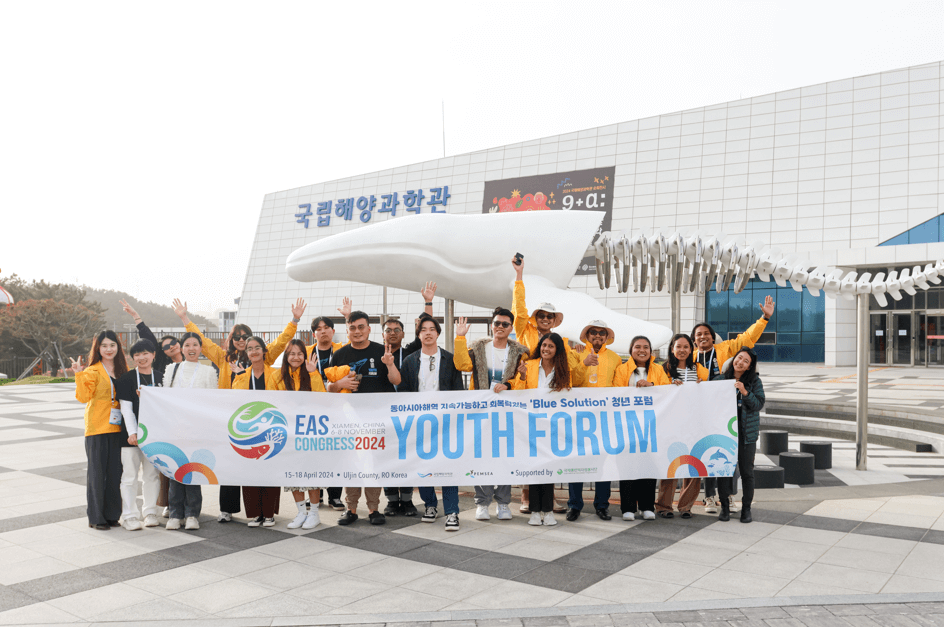PEMSEA's ICM Model Courses for National and Regional ICM Training
Monday, 1 September 2008

Quezon City, Philippines — As part of the PEMSEA participating countries' commitment to place 20 percent of the region's coastline under an integrated coastal management (ICM) program by 2015, as well as to increase the number of ICM practitioners and allied experts in the region, a new ICM model training course has been developed and will soon be rolled out for national and regional training.Over the past 14 years, more than 2,000 individuals have benefited from ICM training, organized and conducted by the GEF/UNDP/PEMSEA regional programme in partnership with participating governments as well as various donors and academic institutions. However, in consideration of the enormous demand that is anticipated by participating countries in their national ICM scaling up programs, the model courses were prepared to facilitate wider and more efficient transfer of knowledge and skills on ICM practice, tools and methodologies. The ICM model courses also underpin PEMSEA's ICM Code and Recognition System, which is being launched in parallel to the ICM training program.The PEMSEA ICM model courses have been designed for three levels of knowledge transfer, namely: Level 1: Understanding ICM; Level 2: Implementing ICM; and Level 3: Policy Support and Scaling Up (Executive Course). Participants in the courses are expected to realize, appreciate and envision ICM's full potential and long-term impact towards sustainable development of coastal areas. Participants will acquire an in-depth understanding of their vital role or their agencies' role in the multidisciplinary and multisectoral approach of developing and implementing an ICM program, as well as learn practical approaches in improving the quality of life of coastal populations through a system of ICM processes and tools that are built on: governance elements, strategic sustainable development aspects/actions, partnerships, State of the Coasts reporting, and ICM Code/recognition. The courses will benefit those in coastal management activities, including: professionals from varied disciplines (e.g., lawyers; economists; natural scientists; sociologists; etc.); environmentalists and other stakeholders (e.g., NGOs with governance advocacies); coastal management project directors; heads of coastal management-related agencies; and post-graduate students. The Level 3 course is specifically designed for local Chief Executives and decision-makers.The first run of the ICM Level 1 Model Training Course will be conducted on 21-29 October 2008 in Manila and Batangas in the Philippines. It will be a regional trainers' training to be participated in by ICM practitioners and partner university representatives from Cambodia, Indonesia, Philippines, Thailand, and Vietnam.The unique, experiential learning structure of the Level 1 Model Training Course is based on:the application of the fundamental principles of sustainable development;basic concepts, principles and tools of ICM as a governance strategy to achieve sustainable coastal development;a systematic approach to ICM program development and implementation;a management framework and process similar to international standards for quality management (ISO 9001) and environmental management (ISO 14001); anda monitoring and evaluation system (State of the Coasts (SOC) reporting), which is based on a set of indicators that link local trends and changes to national and global targets for sustainable development.A series of National ICM Level 1 and Level 2 model courses will be conducted in Cambodia, China, Indonesia, Lao PDR, Philippines, Thailand, Timor-Leste, and Vietnam starting January 2009. Level 3 model courses are expected to commence in the last quarter of 2009.The model courses closely follow The Dynamics of Integrated Coastal Management: Practical Applications in the Sustainable Coastal Development in East Asia as the primary reference document.For more information on the ICM Training Model Courses, email info@pemsea.org.



